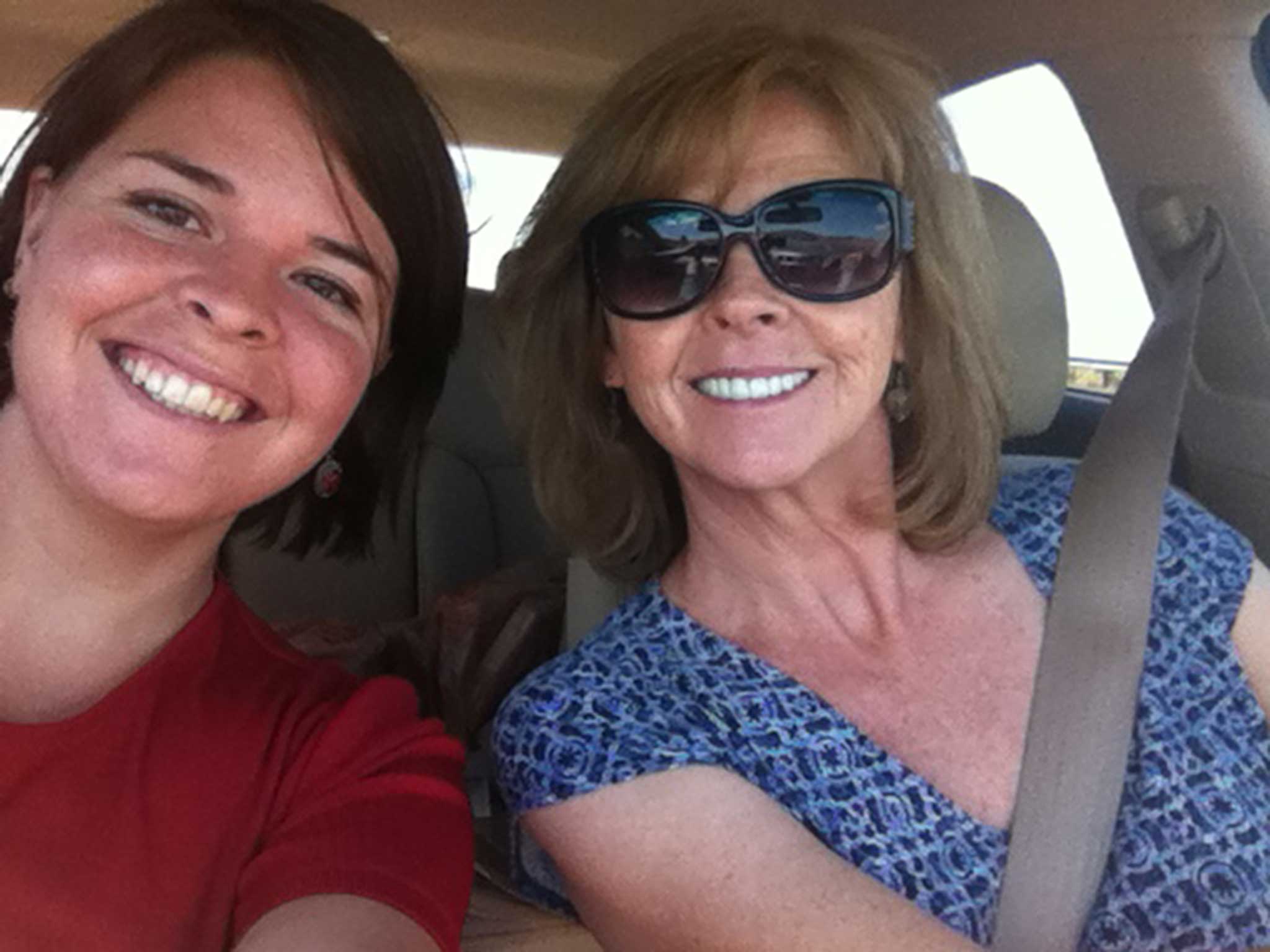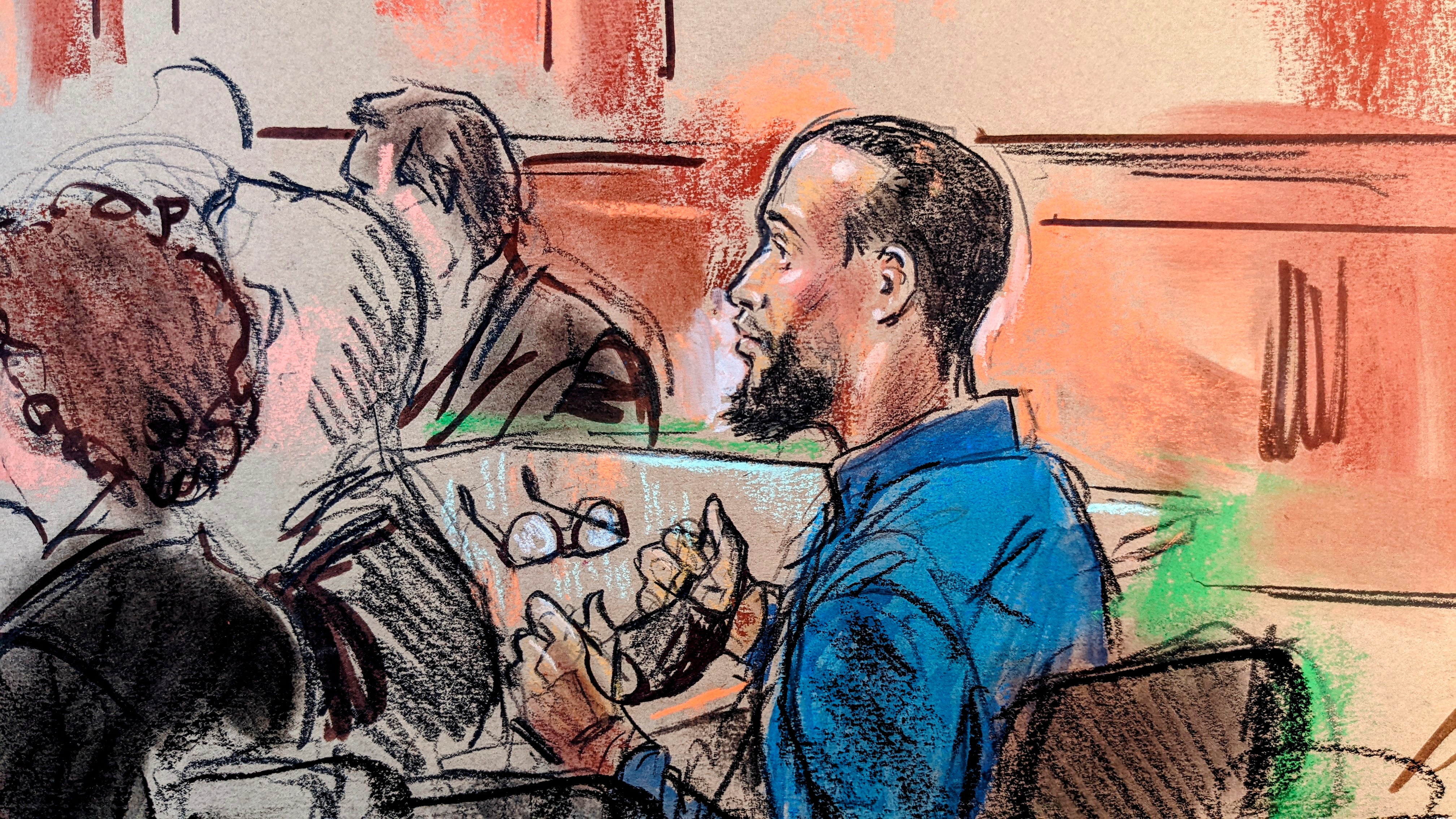Parents of Kayla Mueller sent personal plea to Isis leader Baghdadi asking for mercy
Isis captors ignored repeated pleas from Kayla Mueller’s parents to release her

Your support helps us to tell the story
From reproductive rights to climate change to Big Tech, The Independent is on the ground when the story is developing. Whether it's investigating the financials of Elon Musk's pro-Trump PAC or producing our latest documentary, 'The A Word', which shines a light on the American women fighting for reproductive rights, we know how important it is to parse out the facts from the messaging.
At such a critical moment in US history, we need reporters on the ground. Your donation allows us to keep sending journalists to speak to both sides of the story.
The Independent is trusted by Americans across the entire political spectrum. And unlike many other quality news outlets, we choose not to lock Americans out of our reporting and analysis with paywalls. We believe quality journalism should be available to everyone, paid for by those who can afford it.
Your support makes all the difference.The parents of American aid worker Kayla Mueller, who was kidnapped by Isis and died in captivity, sent a personal plea to the terror group’s leader in a bid to secure her release.
In emotional testimony at the trial of British Isis fighter El Shafee Elsheikh, Marsha Mueller recounted the great lengths she and her husband Carl had gone to in their efforts to free their daughter.
One such attempt included a video message from the two of them to Abu Bakr al Baghdadi, who was the leader of Isis at the time, which they sent in an email to Kayla’s captors.
“I am coming to you with a mother’s heart, for the love of her daughter,” she said in the video, which was shown to the jury on Tuesday.
“Kayla is not your enemy,” she added. “I ask from her mother’s heart that you show your mercy and release our daughter.”
Elsheikh, 33, is charged with involvement in a vast hostage-taking operation during his time with Isis in Syria, which ultimately led to the killing of American journalists James Foley and Steven Sotloff, and aid workers Kayla Mueller and Peter Kassig. The indictment also holds him responsible for the deaths of British aid workers David Haines and Alan Henning.
Kayla Mueller was kidnapped in 2013 during a visit to a hospital in Aleppo with her boyfriend, who was installing internet there.
During her testimony, Marsha Mueller was asked to corroborate emails, presented by the prosecution, between the Mueller family and Kayla’s kidnappers.
The first email from the kidnappers on 23 May 2013 said: “We do not want to harm her. She is like a guest with us at the moment.”
Mrs Mueller described how she and her husband worked with the FBI to craft responses to each email. They were advised by the FBI that the emails should be signed by Carl Mueller, Kayla’s father, because the kidnappers would show him more respect. Mrs Mueller said it was a “relief” to receive that first email because it meant they could start negotiations, but those negotiations quickly soured.

The kidnappers demanded €5m or the release of Aafia Siddiqui, a Pakistani national currently serving an 86-year prison sentence after being convicted in Manhattan in 2010 on charges that she sought to shoot US military officers while being detained in Afghanistan two years earlier.
The Muellers responded: “We are a family of modest means and are concerned because you are asking for a great deal of money that is more than we could earn in several lifetimes,” according to the email shown to the court.
The Mueller family repeatedly told Kayla’s captors that there was no way they would raise that amount of money, and that they had no influence on the government to force them to release Siddiqui.
On 12 July 2014, Isis gave the Muellers 30 days to come up with the money or secure Siddiqui’s release.
“If you fail to meet this deadline, we will send you a picture of Kayla’s dead body,” one email said.
Mrs Mueller described how she then decided that future communications should be signed by both her and her husband.
“I told the negotiators I was going to write something myself,” she said, speaking through tears. “Because I’m Kayla’s mum. I felt I needed to sign it,” she added.
The family made repeated pleas to the kidnappers through the email address they had been given, which ultimately led to the video addressed to the Isis leader on 16 September 2014.
In February 2015, the Mueller family began to hear reports that their daughter had been killed. They emailed the captors asking for information.
“The news regarding your daughter’s death is indeed true,” the response came. Isis claimed the Jordanian air force bombed a house where Kayla was staying – a claim that has been viewed with suspicion given the group’s executions of American hostages.
That same email included photographs of Kayla’s body, which Mrs Mueller was asked to describe to the court.
Mrs Mueller’s testimony followed that of Kayla’s ex-boyfriend Rodwan Safarjalani, a Syrian national who was kidnapped along with Kayla in 2013. He testified how he was separated from Kayla and held intermittently by Isis as he made several trips to secure her release.
Following Mrs Mueller’s testimony, Mr Safarjalani hugged both Carl and Marsha Mueller as they all cried. In the early afternoon, as the court broke for lunch, Mr Safarjalani shouted at Elsheikh as he was led from the courtroom.
In Arabic, he shouted the name of the Isis emir who was in charge of Kayla’s detention, and followed: “He is in hell, you will see him there.”
Elsheikh glanced back before being led from the court by marshals.


Join our commenting forum
Join thought-provoking conversations, follow other Independent readers and see their replies
Comments